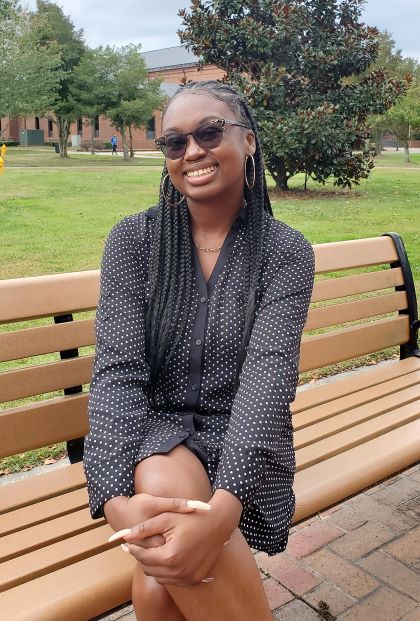
Jessica Collins, a University of Maryland Eastern Shore student pursuing a Master of Science degree in rehabilitation counseling, has been named a Behavioral Health Ambassador by the HBCU Center for Excellence in Behavioral Health.
The federal Substance Abuse and Mental Health Services Administration funds the center housed at Clark Atlanta University. Collins will be among 25 ambassadors participating in the program during the 2021-22 academic year.
By 2025, the U.S. Department of Health and Human Services predicts there will be shortages of behavioral health professionals. The HBCU center aims to promote awareness of and provide support to students pursing degrees in Behavioral Health at Historically Black Colleges and Universities.
As a behavioral health ambassador, Collins will make presentations exposing undergraduates to careers and issues in behavioral health, develop and deliver presentations to undergraduates at HBCUs and engage in conversations with students considering careers in behavioral health.
Behavioral Health Ambassadors also receive a $7,000 stipend and professional development.
“This is a true privilege,” Collins said about being selected for the ambassador program. “It challenges me to continue pushing through to completing my graduate degree and make an impact on a younger generation who have gone through some very difficult times and may feel lost.”
“My goal as a Behavioral Health Ambassador is to be an inspiration to students who are determining their career direction and expose them to the importance of being in a Behavioral Health career,” she said. “I would like to share the impact of the workers in behavioral health in our new normal. I want to let them know the importance of people of color being reflected in behavioral health systems.”
“Without us reflected in the field,” Collins said, “our community perspective and personal perspective doesn’t get communicated.”
The Queens, N.Y. native transferred to UMES from Medgar Evers College in New York, earning her bachelor’s degree in rehabilitation services in 2020. Her field experience included an internship at Anchor House, a faith-based residential drug treatment program in Brooklyn, N.Y., and she currently works as a residential crisis specialist at Go-Getters Lower Shore Clinic.
“She is a very detail-oriented person, which is why she is the student editor for the department newsletter “The Rehab Review,” said Dr. William Talley, associate professor and the Department of Rehabilitation Services chairman.
“She is personable … a solid communicator and she follows through with her commitments. She is the sort of person who always strives to do a good job,” said Talley on the qualities that will help Collins be successful during her ambassadorship.
Collins’ goal is to work in mental health/ substance use disorders programs for adults to provide effective, quality and individualized care to clients, promote choice and dignity, and become an administrator who develops programming that would impact a larger system.

By Tahja Cropper

